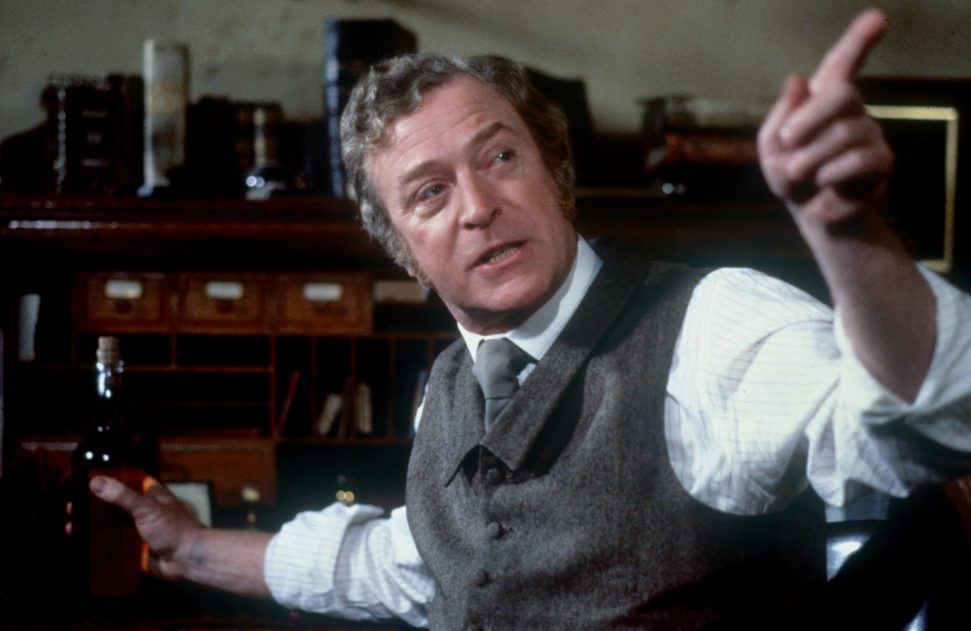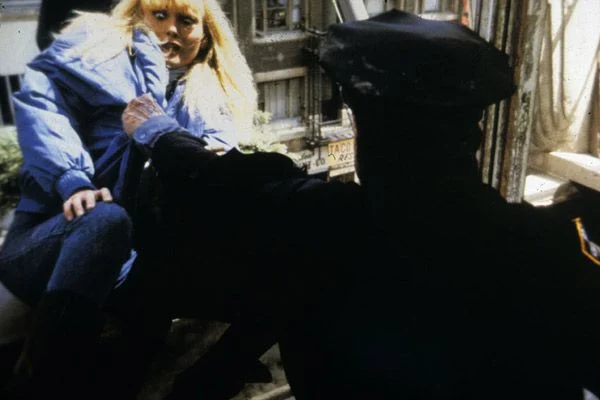 The case of Jack the Ripper is regarded as one of the great unsolved crimes in British history. It is memorable for the fact that the culprit was never brought to justice and the vicious way that five prostitutes met their end. To mark the centenary of the crime a television two part miniseries was produced. The writers were given access to many of the original Police files and documentation at the time in order to lend authenticity to their version.
The case of Jack the Ripper is regarded as one of the great unsolved crimes in British history. It is memorable for the fact that the culprit was never brought to justice and the vicious way that five prostitutes met their end. To mark the centenary of the crime a television two part miniseries was produced. The writers were given access to many of the original Police files and documentation at the time in order to lend authenticity to their version.
The first of the infamous murders has just taken place in Whitechapel, London. Assigned to the case is the Inspector Abberline (Michael Caine). He is Scotland Yard’s best detective but he is in a bit of a state due to an ongoing engagement with the bottle. With his trusted sergeant (Lewis Collins) at his side to keep him sober he begins to piece together the clues left at the scene of the grizzly and bloody murder. Soon, another victim with the same injuries is found resulting in the local newspapers declaring a serial killer is on the loose. Abberline tries to follow the evidence despite the unwanted attention from the media, his superiors and the uneasy public.
This is a good example of how a Police procedural should be presented on screen. The story focuses on the efforts of the two policemen rather than the more salacious aspects of the crime. For the majority of the film we are with Abberline as he follows particular lines of enquiry. It is all about the details. As we only find out the facts at the same time as the detectives we are never ahead of them in terms of solving the crime. This keeps it interesting.
 It was something of a change for Michael Caine to be heading up a TV mini series. He was still very much a screen actor in demand and at the time a move into television would have been seen as a step down. The director and the ambition of the production were cited as the reasons why he chose to do it. As with all his roles, Caine is superb here. He is the focus of attention for the drama. His performance is nuanced and powerful while avoiding the clichés that can be associated with on screen detectives. How many times have we seen the troubled alcoholic detective on screen portrayed in exactly the same way? Thankfully not here.
It was something of a change for Michael Caine to be heading up a TV mini series. He was still very much a screen actor in demand and at the time a move into television would have been seen as a step down. The director and the ambition of the production were cited as the reasons why he chose to do it. As with all his roles, Caine is superb here. He is the focus of attention for the drama. His performance is nuanced and powerful while avoiding the clichés that can be associated with on screen detectives. How many times have we seen the troubled alcoholic detective on screen portrayed in exactly the same way? Thankfully not here.
Caine is surrounded by some top acting talent to reinforce his own forts. Lewis Collins has often been marginalised as a one note actor which is more than a little unfair. Here he is excellent as the foil to Caine’s Abberline. He has just about the same screen time as Caine and their interactions and analysis are the way that the story is moved forward.
In addition to the leads there are a number of very well known faces, most of whom are considered as the suspects in the drama. The way the story unfolds is very clever in that you don’t get an inkling of who will turn out to be the murderer. Of course, the case was never officially solved so the writers take all the evidence available and make a logical conclusion.
The format lends itself very well to the drama. With the two part format and extended run time the drama unfolds without any rush to get to the conclusion. It means that there is time to examine some of the social aspects surrounding the case that are still relevant today. The role of the press and the way it sensationalised the murders is a running theme. They are shown to be acting only in their best interests while a vigilante mob are confronting the police over their alleged mismanagement of the case. Some things never change.
- Arrow Video Titles For March 2025 - January 5, 2025
- G20 – Preview - January 5, 2025
- Royal Opera House launches Maria Callas tour featuring Angelina Jolie’s costumes from new biopic Maria - January 5, 2025




